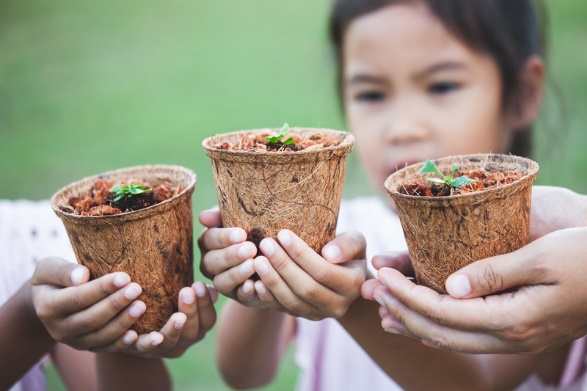 |
Tell Your Customers: "Stay home and garden.
What else are going to do? Use CERTIFIED COMPOST!” |
As impacts of COVID-19 continue to escalate, we’ve been gathering resources, ideas and thoughts for you. Today’s message is focused on our largest membership group, compost producers.
It’s important to be transparent about what we don’t know: the life of this virus in compost at proper Process to Further Reduce Pathogens (PFRP) facilities is not tested.
However, what we do know is:
- There is no current evidence from surrogate human coronaviruses that they are present in surface or groundwater sources or transmitted through contaminated drinking water. The COVID-19 virus is an enveloped virus with a fragile outer membrane. Generally enveloped viruses are less stable in the environment and are more susceptible to oxidants.1
- What does this mean? It means that with all the proper precautions you already take in your industrial compost process, (mixing into ASP, windrows or other processes), it is unlikely this virus is transferrable in commercial compost piles that have reached PFRP. Precautions to take in your process:
-
Workers should wear OSHA recommended PPE when handling and mixing raw feedstocks.
-
Equipment used for feedstock material handling and mixing should not be used for curing, screening or loading of finished compost products.
-
Feedstock receiving and mixing should be downstream or physically separated from finished product storage.
-
Equipment buckets, tracks and tires should be steam cleaned of disinfected with an EPA approved sanitizer before entering any curing or finished product area.
-
Transport vehicles and general public traffic should not enter these areas.
-
Feedstock transport trucks should not be used to transport curing or finished compost.
-
Employees should follow CDC guidelines for sanitation and hand washing.
- For your customers, collection of food waste in a compost bin is no more or less dangerous than putting it in a trash can. (Collectors are cautioned to collect restroom waste in a sealed compostable bag.
- Composting is a vital part of community infrastructure. Staying open at this time helps keep methane-generating materials from the landfill. Of course, should decide if the risk to your community outweighs that mission.
- Protect your employees, customers and vendors through sanitizing and CDC recommended social distancing
- Monitor local guidance and stay up to date on local restrictions.
- Follow application instructions issued by your STA Compost producer.
Keep Up Your Good Work!
While taking time to be sure all of the proper precautions are being followed in your facility, we encourage you to continue producing the organic matter—compost—we need for healthy soil. It is important that we continue to be the source of life-giving compost, which is our mission.
- Monitor local guidance and stay up to date on local restrictions.
- Follow application instructions issued by your STA Compost producer.
1https://www.who.int/publications-detail/water-sanitation-hygiene-and-waste-management-for-covid-19#.Xm9V1sD_Pw0.email
OTHER RESOURCES:
US EPA Literature review of effectiveness of pathogen reduction
https://www.epa.gov/sites/production/files/2018-12/documents/plain-english-guide-part503-biosolids-rule.pdf
Safety Gear (PPE) at Compost Facilities: https://www.aphis.usda.gov/animal_health/emergency_management/in-house_composting/scopage_dir/ovr/ppe.html
Composting for Avian Influenza Virus Elimination: https://www.ncbi.nlm.nih.gov/pmc/articles/PMC3346479/
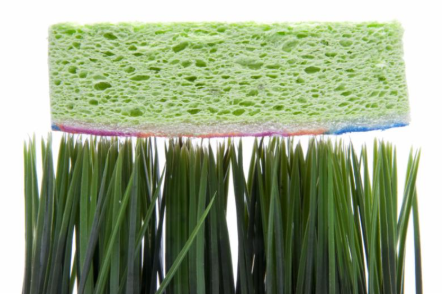 It does pay to do some spring cleaning to make life operate a bit more smoothly! It does pay to do some spring cleaning to make life operate a bit more smoothly!
The US Composting Council needs to ask you to do two things:
1. Log in to Your Account and Make Sure Your Address and Primary Contact Information is correct.
There are 3 steps to this:
- Go to this link: https://www.compostingcouncil.org/login.aspx
- Type in your username (if you don’t know it, email Megan and she’ll get it to you). If you don’t know your password, you’ll have to click FORGOT PASSWORD and reset it-note that it may go to your spam!
- Go to your PROFILE (see the attached graphic) and click on EDIT to fix your information.
2. Forward this email to whoever pays the bill in your organization, and ask them to change the address for USCC!
(A standard W9 can be found here in case you need it).
The New Address is:
US Composting Council
PO Box 19246
Raleigh, NC 27619
 COVID-19 EMERGENCY IMPACTS TEST CENTERS. Our certification tests are provided by PSI. Many of their test centers are closed due to the novel corona virus. If your test is impacted, you will be called by the test center, and you can check their website here. If you need to reschedule due to illness please notify us as well at administrator@certificationsUSCC.org COVID-19 EMERGENCY IMPACTS TEST CENTERS. Our certification tests are provided by PSI. Many of their test centers are closed due to the novel corona virus. If your test is impacted, you will be called by the test center, and you can check their website here. If you need to reschedule due to illness please notify us as well at administrator@certificationsUSCC.org
RENEWALS!!
We launched the first professional composter credential, the Certified Compost Operations Manager (CCOM), back in 2016. Everyone who was certified between that time and the launch of the second credential, the Certified Composting Professional (CCP), had three years to renew or pay a maintenance fee. Since the program faced a couple technical setbacks since the initial launch, the first round of renewals was not due until April 2.
Invoices for April renewals went out at the beginning of March, and we are pleased to report that many people have already renewed and paid their maintenance fees.
What does renewal mean? Certification credentials are issued for three years (or a little longer in the case of the initial group). After that time, you can renew if you meet two conditions:
- You are in good standing with the Certification Commission, which means your maintenance fees are paid
- You have attended at least 30 hours of continuing education, and documented this through the recording of 30 Professional Development Hours (PDHs).
2a. If someone does not have 30 PDHs, they may opt to retake the certification test. We are offering that test at 50% off right now. Passing the test will renewal your certificate for 3 years. However the test-instead-of-PDHs option can only be used once, and next time around you’ll need to have the 30 PDHs in order to renew.
Some people might have been counting on attending a conference, such as BioCycle West Coast or Waste Expo, where you can earn over 20 PDHs. However, because those conferences have been cancelled or postponed due to the COVID-19 emergency, you have a new option: webinars.
We are now accepting credits from Webinars! Many certificants asked us about using webinar for continuing education credits. Your Commissioners heard you! We are working on adding this capacity in multiple ways:
- Right now you can use this form to document your individual participation in a webinar. In addition to the usual information, we just ask that you summarize a key learning element from the webinar.
- You could organize watching a webinar or stream a conference session (live or on-demand) in a group setting, and use this form.
- We are working with Forester University to provide credits for webinars related to using compost for stormwater management. There are a few there now, with more to come. You can find those listed HERE.
- Within the year we expect to launch our own “Learning Center” where we will be able to add other content for education and credit.
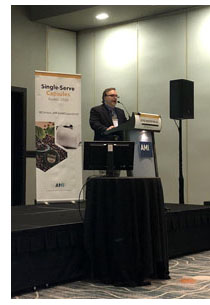 Executive Director Frank Franciosi traveled to Austin, Texas, for the Single-Serve Capsules Conference in early March to speak about obstacles and opportunities to increase composting infrastructure in the US. Executive Director Frank Franciosi traveled to Austin, Texas, for the Single-Serve Capsules Conference in early March to speak about obstacles and opportunities to increase composting infrastructure in the US.
Did you know:
- COFFEE IS THE #1 consumer daily beverage in both the US and Canada.
- The sales of pods in the US and RETAIL coffee market (excluding instant) is the largest selling segment (vs. cans, ground bags and whole bean bags) reaching $5.6B in 2019.
- The tonnage of coffee pods in 2019 was 89,616.7 tons; since 2014 this adds up to 450,000 tons.
- Composting is emerging as the “new recycling,” with the who recycling industry being exposed with research showing less than 10% of plastics get recycled … both consumers and manufacturers are looking at other alternatives – especially when it comes to FOOD WASTE diversion.
- Composting organics and food related packaging helps to manage greenhouse gases when processed properly, which is better than sending them to landfill.
- We need to think about the entire supply chain and lifecycle – what goes into the materials i.e. plant-based renewable vs fossil fuel plastics, carbon footprint, as well as consumer ease of use and composter processing capability downstream. So, collaboration across all stakeholders is critical.
- Education and managing contamination risks are key; therefore, proper claims, certifications and identifiable cues will be critical to success.
Thank you to Club Coffee for the above statistics! Watch for more data as we create web resources later this month.
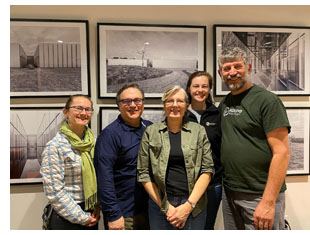 The US Composting Council staff met for two days at the Raleigh, NC office to plan deployment of the Strategic Plan adopted by the Board of Directors in fall 2019. The US Composting Council staff met for two days at the Raleigh, NC office to plan deployment of the Strategic Plan adopted by the Board of Directors in fall 2019.
From left, Hilary Nichols, STA Manager/Market Development Coordinator; Frank Franciosi, Executive Director; Linda Norris-Waldt, Membership/Communications Director; Megan Hester, Administrative Coordinator, Cary Oshins, Associate Director/Certification/Education Director.
 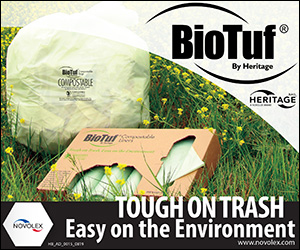
|

The USCC’s Legislative and Environmental Affairs Committee recommended USCC support of a plethora of compost-related bills in upcoming legislative sessions, although many statehouses are adjourning without completing business due to coronavirus concerns.
Compost use expert and longtime member Ron Alexander recently wrote the cover story for North Carolina Turfgrass Magazine about compost use in the turfgrass industry. You can read it here.
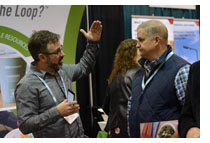 If you have a product or service you would like your fellow members to buy, chances are you’ve considered having a booth at our annual Conference and Trade Show. If you have a product or service you would like your fellow members to buy, chances are you’ve considered having a booth at our annual Conference and Trade Show.
USCC makes a very sweet proposition for you: book your booth at $400 less than the non-member competition! That’s a big savings that you can put towards your booth materials, marketing to attendees and other conference costs!
Plus, its still super early bird time.
Click here to find out about pricing and options.
Please welcome these new members to the US Composting Council!
 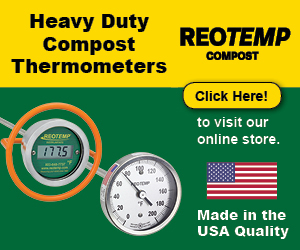
|

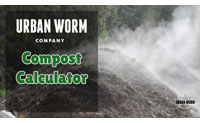 USCC member Steve Churchill of the Urban Worm Company has developed an easy-to-use compost calculator which can quickly calculate C:N ratios for a list of commonly-composted materials. Simply pick from a list of ingredients categorized as greens or browns and the calculator will return a C:N value based on the mass and bulk density of each material. You can choose metric or English units, from as small as ounces and grams to cubic meters and cubic yards, taking into account the bulk density of each ingredient. USCC member Steve Churchill of the Urban Worm Company has developed an easy-to-use compost calculator which can quickly calculate C:N ratios for a list of commonly-composted materials. Simply pick from a list of ingredients categorized as greens or browns and the calculator will return a C:N value based on the mass and bulk density of each material. You can choose metric or English units, from as small as ounces and grams to cubic meters and cubic yards, taking into account the bulk density of each ingredient.
The Urban Worm Company is geared more towards beginning vermicomposters and composters, so the calculator doesn't account for advanced factors like particle size, moisture, or the significant variability of general ingredients like food waste. But it can be a handy tool to funnel beginners and small operators into an acceptable C:N range. Beginners might also enjoy the discussion on the page regarding desired C:N ratios for composting vs vermicomposting and how similar volumes of carbon-rich materials will produce massive differences in C:N due to the wide variability in bulk densities.
Use the Urban Worm Company's Compost Calculator.
 Smile Coffee Werks, a public benefit corporation, has unveiled compostable coffee pods made from renewable raw materials. The patented technology utilizes an ultrasonic sealed paper lid, paper filter and plant-based, BPA-free cup, creating a commercially compostable coffee product; a seamless fit for waste-conscious consumers, private labels, retailers and hospitality groups alike. Smile Coffee Werks, a public benefit corporation, has unveiled compostable coffee pods made from renewable raw materials. The patented technology utilizes an ultrasonic sealed paper lid, paper filter and plant-based, BPA-free cup, creating a commercially compostable coffee product; a seamless fit for waste-conscious consumers, private labels, retailers and hospitality groups alike.
The pods are compatible with Nespresso® classic style coffee makers, BPI-certified and commercially compostable in 12 weeks. Made from 90 percent renewable plant-based products, the pods are the first carbon neutral, single step disposal product to hit the market. Smile Coffee Werks is available for purchase at sbwerks.com in compatible 100% Arabica Espresso pods (16 count, $10.99). Smile plans to unveil Keurig® compatible K-Cups in spring 2020.
“Single-serve coffee is hugely popular and convenient, but creates tremendous waste to our environment,” says Frank Schuster, co-founder of Smile Coffee Werks. “Coffee consumers can now purchase commercially compostable products, a guilt-free way to enjoy your daily cup of joe.”
To learn more about Smile Coffee Werks, visit sbwerks.com.
DHEC’s Office of Solid Waste Reduction and Recycling (Office) Grants for Municipalities. Due Friday, April 3, 2020. Click here.
Healthy Soils Program (HSP) Incentives Program ($100,000) and the HSP Demonstration Projects ($250,000). Due Thursday, April 23, 2020. Click here.
US EPA PFAs Action Plan Update. Click here.
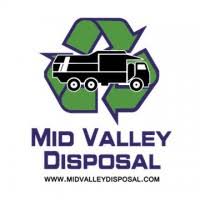 Organization: Mid Valley Disposal Organization: Mid Valley Disposal
Date Posted: 2/28/2020
Date Needed: 3/1/2020
City: Kerman
Location: California
Country: United States
Primary Category: Operations
Salary: $16.00 hourly
Type of Position: Full-Time
Education Requirement: High School / GED
Experience Requirement: 1-2 years
Description & Details
A Heavy Equipment Operator who can work with Front End wheel loaders and can work safely in a high traffic environment. The operator should be able to carry out all assignments with minimal supervision. The ability to operate an Excavator is an added advantage.
 The Composting Council Research & Education Foundation (CCREF) Board of Trustees are extremely grateful to so many USCC members who supported the CCREF’s fundraising drive at COMPOST2020. The fundraising resulted in CCREF raising over $50,000, which will be used to fund important research projects on behalf of the composting manufacturing industry. The Composting Council Research & Education Foundation (CCREF) Board of Trustees are extremely grateful to so many USCC members who supported the CCREF’s fundraising drive at COMPOST2020. The fundraising resulted in CCREF raising over $50,000, which will be used to fund important research projects on behalf of the composting manufacturing industry.
The Foundation is operated predominantly through donations, and the recent fundraising will enable some valuable research projects to be initiated. The first on the list is the project Return on Investment (ROI) Analysis of Applying Compost to Aid Product Marketing. The goal of this project is to help educate the market on the economic benefits of applying compost. If funding allows, the next project CCREF will start will be Best Management Practices (BMP) for Compost Production. That’s a much larger project that will need additional fundraising to complete. The CCREF Trustees and staff would like to express how grateful they are to everyone who donated to the Foundation and to these new research projects.
23
Mar 2020
|
March 23, 2020; New Britain, CT
|
25
Mar 2020
|
AASHE (Association for the Advancement of Sustainability in Higher Education)
March 25, 2020
|
30
Mar 2020
|
March 30 - April 2, 2020; Sacramento, CA
|
7
Apr 2020
|
April 7 & 8, 2020; Albany, NY
|
5
May 2020
|
May 5-7, 2020; Bay City, MI
|
17
Jun 2020
|
June 17-18, 2020; Minneapolis, MN
|
22
Jun 2020
|
June 22-26, 2020; Hillsborough, NJ
|
3
Aug 2020
|
Aug. 3-7, 2020; Lincoln, NE
|
10
Aug 2020
|
Aug. 10-13, 2020; New Orleans, LA
|
14
Sep 2020
|
Sept. 14-18, 2020; Raleigh, NC
|
15
Oct 2020
|
CURC (College & University Recycling Coalition)
October 15, 2020
|
26
Jan 2021
|
Jan. 26-30, 2021; Ontario, CA
|
|


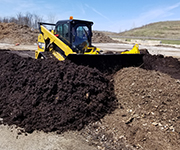
 It does pay to do some spring cleaning to make life operate a bit more smoothly!
It does pay to do some spring cleaning to make life operate a bit more smoothly! COVID-19 EMERGENCY IMPACTS TEST CENTERS. Our certification tests are provided by PSI. Many of their test centers are closed due to the novel corona virus. If your test is impacted, you will be called by the test center, and you can check their website
COVID-19 EMERGENCY IMPACTS TEST CENTERS. Our certification tests are provided by PSI. Many of their test centers are closed due to the novel corona virus. If your test is impacted, you will be called by the test center, and you can check their website  The US Composting Council staff met for two days at the Raleigh, NC office to plan deployment of the Strategic Plan adopted by the Board of Directors in fall 2019.
The US Composting Council staff met for two days at the Raleigh, NC office to plan deployment of the Strategic Plan adopted by the Board of Directors in fall 2019.

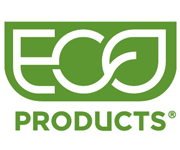
 If you have a product or service you would like your fellow members to buy, chances are you’ve considered having a booth at our annual Conference and Trade Show.
If you have a product or service you would like your fellow members to buy, chances are you’ve considered having a booth at our annual Conference and Trade Show.
 USCC member Steve Churchill of the Urban Worm Company has developed an easy-to-use compost calculator which can quickly calculate C:N ratios for a list of commonly-composted materials. Simply pick from a list of ingredients categorized as greens or browns and the calculator will return a C:N value based on the mass and bulk density of each material. You can choose metric or English units, from as small as ounces and grams to cubic meters and cubic yards, taking into account the bulk density of each ingredient.
USCC member Steve Churchill of the Urban Worm Company has developed an easy-to-use compost calculator which can quickly calculate C:N ratios for a list of commonly-composted materials. Simply pick from a list of ingredients categorized as greens or browns and the calculator will return a C:N value based on the mass and bulk density of each material. You can choose metric or English units, from as small as ounces and grams to cubic meters and cubic yards, taking into account the bulk density of each ingredient.
 Organization: Mid Valley Disposal
Organization: Mid Valley Disposal The Composting Council Research & Education Foundation (CCREF) Board of Trustees are extremely grateful to so many USCC members who supported the CCREF’s fundraising drive at COMPOST2020. The fundraising resulted in CCREF raising over $50,000, which will be used to fund important research projects on behalf of the composting manufacturing industry.
The Composting Council Research & Education Foundation (CCREF) Board of Trustees are extremely grateful to so many USCC members who supported the CCREF’s fundraising drive at COMPOST2020. The fundraising resulted in CCREF raising over $50,000, which will be used to fund important research projects on behalf of the composting manufacturing industry.